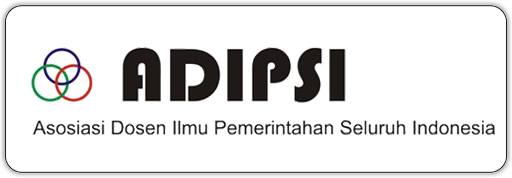Spatial Battle: The Dynamics of Fisherman Community Resistance to the Management of the Lagoi International Tourism Area in Bintan Regency
DOI:
https://doi.org/10.31629/kemudi.v7i02.5619Keywords:
Community resistance; Spatial Conflict.Abstract
This article aims to discuss the phenomenon behind the management of the Lagoi International Tourism Area, which creates conflicts over the space for residential fishing communities and tourism space for foreign private parties. The presence of foreign private parties as a form of cooperation between the Indonesian government and the Singapore government has created resistance from the people who live as fishermen in struggle for their residential land (fishing ground). In addition, the area manager who came up with Singapore as a role model in managing the tourist area, which of course, there was not compatible with the socio-cultural conditions of the local community, participated in triggering rejection by the community. We uses the theory of resistance by James Scott regarding patterns and strategies of community resistance to fight for their residential land in the management of the Lagoi International tourist area. This research uses a case study research model, using participatory observation, in-depth interviews, and documentation as data collection techniques. The findings are that the fishing community's resistance towards the area manager experienced a shift from the previously closed symbolic pattern to an open-frontal pattern. Community resistance also experienced a weakening caused by external factors and internal factors.
Downloads
References
Agung, Indra. (2018). Resistensi Masyarakat Adat: Merebut Kembali Ruang Kehidupan Rekognisi Masyarakat Adat Meratus. Thesis of Public policy management department,Gadjah Mada University.
Amalia, Eva. (2004). Pembebasan Tanah dan Konflik Sosial: Studi tentang Kebijakan Pembangunan Kawasan Pariwisata Pulau Binta. Thesis of Sociology department, Gadjah Mada University.
Caporaso, James A. (2008). Teori-Teori Ekonomi Politik. Yogyakarta: Pustaka Pelajar.
Crawhaw, Steven. (2015). Tindakan-Tindakan Kecil Perlawanan. Yogyakarta: Insistpress.
Kinseng, Rilus A. (2014). Konflik Nelayan. Jakarta: Yayasan Pustaka Obor Indonesia
Lofland, John. (2015). Protes: Studi tentang Prilaku Politik dan Gerakan Sosial, Yogyakarta: Resist Book.
Paskarina, Caroline dkk. (2015). Berebut Kontrol Atas Kesejahteraan. Yogyakarta: Penerbit PolGov.
Scott, James. (2000). Senjatanya Orang-Orang yang Kalah. Jakarta: Yayasan Obor Indonesia.
Santoso, Hery. (2004). Perlawanan di Simpang Jalan. Yoygakarta: Penerbit DAMAR.
Situmorang, Saur. (2010). Orang-orang yang Dipaksa Kalah: Penguasa dan Aparat Keamanan, Milik Siapa?. Jakarta: Yayasan Obor Indonesia.
Snow, David. (2004). Framing Process, Ideology and Discursive Fields. Massachusets: Blackwell Publishing.
Tatang, Ahmad. (2018). Gerakan Sosial dan Kebudayaan (Teori dan Strategi Perlawanan Masyarakat Adat atas Serbuan Investasi Tambang). Malang: Instrans Publishing.
Topatimasang, Roem. (2016). Orang-Orang Kalah (Kisah Penyingkiran Masyarakat Adat Kepulauan Maluku). Yogyakarta: Insistpress.
Zach, Florian J. 2017. Network, Knowledge and Relationship Impacts on Innovation. Jurnal Tourism Management, Published by Elsevier Ltd. This is an open access article under the CC BY license (http://creativecommons.org/licenses/by/4.0/).
Zald, Mayern N. (1964). Social Movement Organizations: Growth, Decay and Change. Vanderbilt University.













